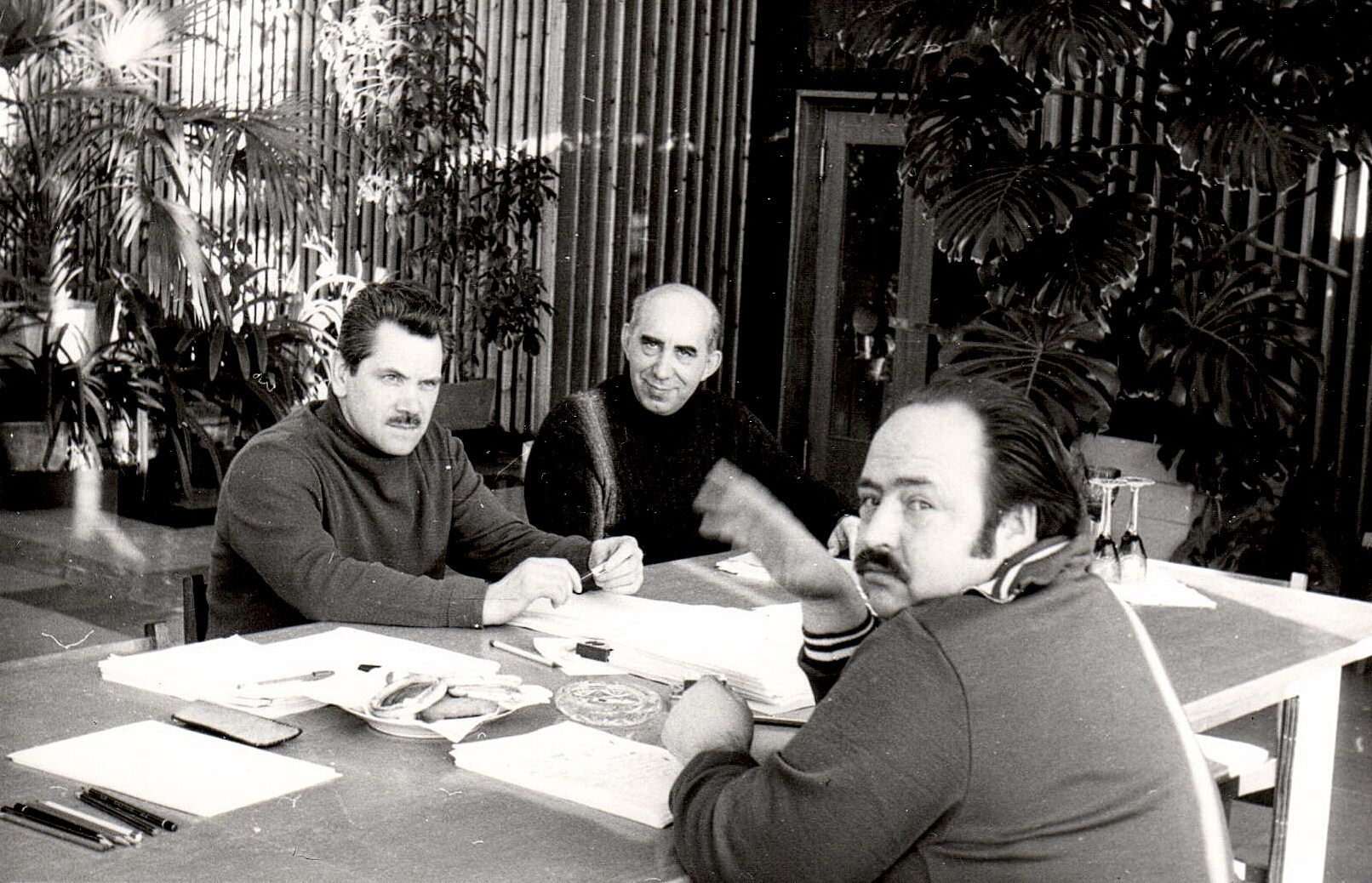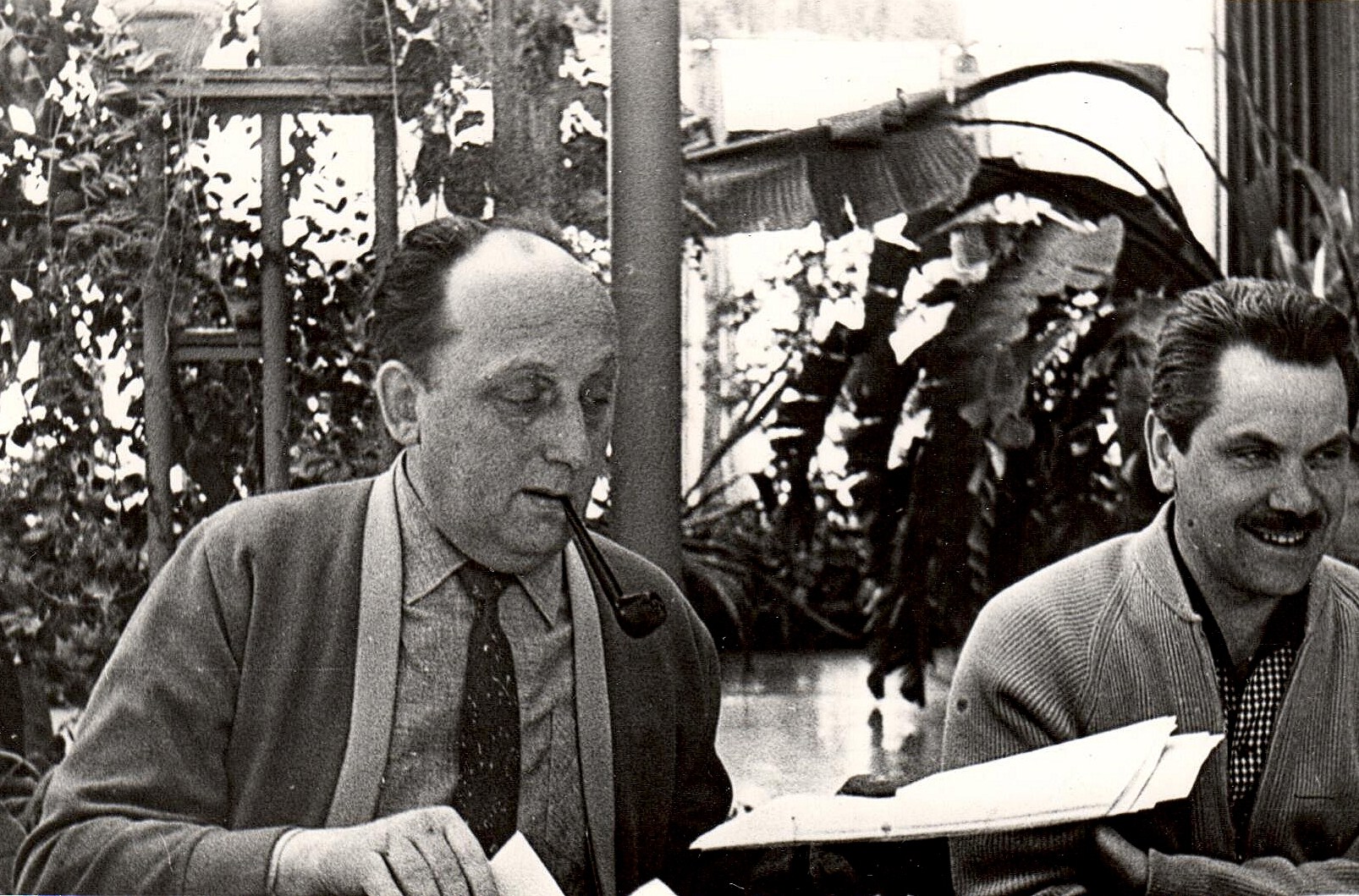 |
| First trip with Gorbachev. Chernyaev in Belgium, October 1972. |
Soviet government official Anatoly Chernyaev records an insider's view of the Brezhnev era
National Security Archive Electronic Briefing Book No. 379
Posted - May 25, 2012
For more information contact:
Svetlana Savranskaya - 202/994-7000
Translated and edited by Anna Melyakova and Svetlana Savranskaya
"Anatoly Chernyaev's diary is one of the great internal records
of the Gorbachev years, a trove of irreplaceable observations about a
turning point in
history. There is nothing else quite like it, allowing the
reader to sit at Gorbachev's elbow at the time of perestroika and
glasnost, experiencing the
breakthroughs and setbacks. It is a major contribution to our
understanding of this momentous period."
— David E. Hoffman, Pulitzer Prize-winning author of The Dead Hand
— David E. Hoffman, Pulitzer Prize-winning author of The Dead Hand
"Remarkable diary ..."
— Historian Amy Knight, New York Review of Books, April 6, 2012
— Historian Amy Knight, New York Review of Books, April 6, 2012
 |
 |
Washington, D.C., May 25, 2012 – Today the National Security Archive publishes excerpts from Anatoly S. Chernyaev's diary of 1972
for the first time in English translation with edits and
postscript by the author. While the diary for the Gorbachev years,
1985-1991, published before and widely used in scholarly work on the end
of the Cold War
provided a major source on the Gorbachev reforms, the earlier years
of the diary give the reader a very rare window into the workings of the
Brezhnev inner
circle in the 1970s.
The portrait of the Soviet leader Leonid Brezhnev, whom most
Americans remember from his later years as frail and incomprehensible,
emerges very differently
from the earliest in the series of diaries donated by Anatoly
Sergeyevich Chernyaev to the National Security Archive. In 1972,
Chernyaev, deputy head of
the International Department of the Central Committee, started
keeping a systematic diary, recording his attendance at Politburo
meetings, his
participation in meetings at the state dacha in Zavidovo (where the
experts and speechwriters met to draft speeches and reports for the
General Secretary),
visits abroad, and the daily life of a high-level Soviet
apparatchik.
In 1972, Brezhnev is a skillful negotiator, who prepares seriously
for Richard Nixon's first visit to Moscow, who discusses texts of his
speeches with
leading Moscow intellectuals whom he brought into his inner circle
as speechwriters and consultants, who is essentially non-ideological in
his dealings
with foreign leaders-negotiating arms control and economic
agreements with Nixon while the U.S. forces are bombing the Soviet
communist ally Vietnam,
preferring Georges Pompidou to the leader of French communists
Georges Marchais, and"brainwashing" Pakistani leader Bhutto. The two
most striking differences
between the aging Brezhnev of the late 1970s-early 1980s and the
Brezhnev of this diary are that the General Secretary is clearly in
charge of the
Politburo sessions and that he actively consults with leading
experts and intellectuals, such as Georgy Arbatov, Nikolai Inozemtsev,
Alexander Bovin and
Chernyaev himself.
Chernyaev's daily duties are centered around the international
communist movement, interactions with representatives from European
communist parties. The
reader sees Chernyaev's emerging disillusionment with his work,
which in comparison to real foreign policy, like preparation for Nixon's
visit, feels
meaningless. Chernyaev comes to believe that "the Communist Movement
right now is nothing more than an ideological addendum to our foreign
policy," and
that the Soviet authority in the progressive movements in the world
is shrinking: "nobody believes us anymore, no matter how we portray the
Chinese and try
to explain our Marxist-Leninist purity."
He sees the future in a different direction. After Nixon's visit,
Chernyaev is asked to draft Brezhnev's speech on Soviet-American
relations and thus is
allowed to see all the materials from the meeting, including all
transcripts of conversation. Impressed with the quality of interaction
and the
non-ideological spirit of it, Chernyaev anticipates a new era: "Be
that as it may, but we've crossed the Rubicon. The great Rubicon of
world history. These
weeks of May 1972 will go down in history as the beginning of an era
of convergence."
But the new era will only come thirteen years later. In 1972, he
sees the first almost imperceptible sign from the future. In October
1972, he is asked to
accompany first secretary of the Stavropol region on a trip to
Belgium. This is where Chernyaev meets and spends time with Mikhail
Gorbachev for the first
time. Astonishingly, as Chernyaev later admits, he did not record
this meeting in the diary at the time. Only photographs documented this
auspicious
meeting where Chernyaev sits on the left hand of the future Soviet
leader, whose right hand he was destined to become in the late 1980s.
No hay comentarios:
Publicar un comentario